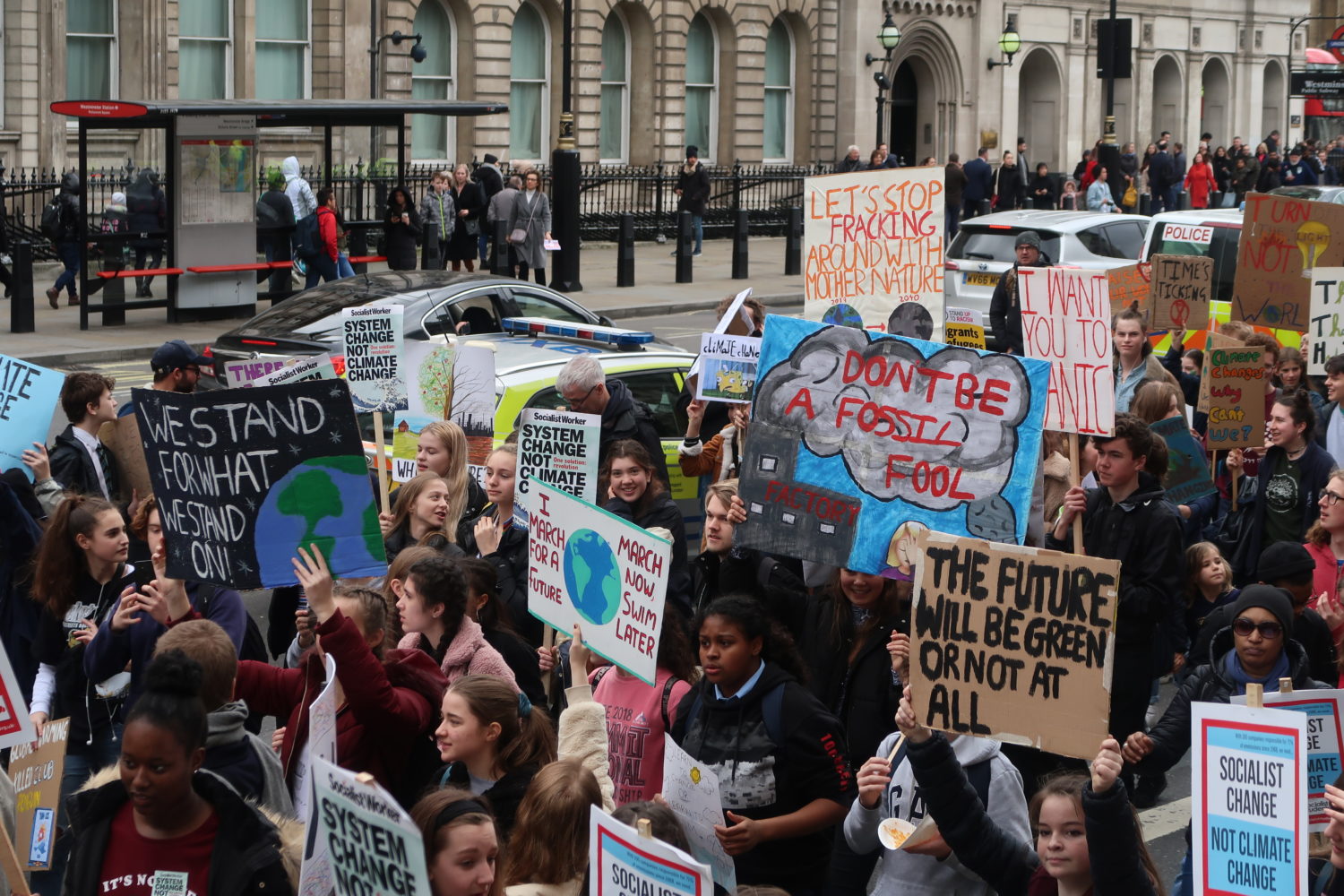
13 Dec The rise of eco-anxiety
Forget FOMO, leading climate psychologist Caroline Hickman warns about an emerging trend among young people – FOFE: fear of facing extinction.
In a time scale of merely a year, born from stark warnings from scientists, and bred by mass mobilisations of grassroots activism across the globe, public awareness has shifted. Global catastrophes are on the rise and climate psychologists warn many young people are terrified.
According to Caroline Hickman, a leading climate psychologist, this response is perfectly healthy. This awareness in young people has led to them verbalising and voicing their concerns. This can lead to a desire for action. By moving towards a psychology in the community and the wider-world that acknowledges these feelings, with the right support, we can build resilience. Depression could be “part of the solution” if it means we have an opportunity to fix things. With the right support, the framing can be altered to prompt questions such as: “Now, what do I do with this?”
Her experience researching and interviewing young people in the UK and the Maldives, along with her psychotherapy practice and teaching position at the University of Bath, has taught her about the troubling realities of the crisis, but also led her to discover an opportunity: “For me it’s about transforming that pain and that rage into a desire to help others and also the make it meaningful in the world.”
She believes the way to deal with it is to promote a style of “internal activism”, alongside traditional forms of activism. It’s about confronting the deep feelings of grief and despair and bringing “feelings into the frameworks.”
She too feels the weight of impending doom: “I get depressed, I get despairing, I get hopeless, I just wish this wasn’t happening – I don’t want to have to deal with this.”
“I’m a human being in the world who is equally as anxious about the climate and biodiversity crisis as anyone else. I’m equally depressed and equally despairing. I’m equally feeling guilt and shame and all the rest of it.” Years of social work and practice as a psychotherapist has taught her how to deal with her own emotional needs: “I invite my depression and despair to the table. It has a seat. I just don’t want it to dominate the conversation.”
She gave an example from her own experience at the University of Bath where she often gives workshops for engineering students on eco-anxiety, teaching them how to have those difficult conversations with the wider community in an attempt to develop emotionally intelligent engineers for the future. The aim is to develop “holistically educated students who will be well prepared to deal with the world that they’re inheriting.”
“We’re trying to look forward ten years down the line and think what the world is going to be like. What sort of engineers are we going to need in ten years time? We’re going to need engineers who can think this way and deal with their own feelings, as well as the feelings of the population that they’re working with.”
Her experiences have exposed her to the harsh reality that this is no longer a future issue. In the Maldives and Bangladesh, she has seen the immediate crisis for what it is. The science reports we have limited time to solve the crisis before we reach alarming levels of warming. Unfortunately, for many communities around the world, this is untrue. It is too late for them. Fires are raging and cities are sinking: “If we think immigration is a problem into Europe at the moment, this is nothing compared to what’s coming.”
Many of the students who attend her talks and lectures feel a lot of anxiety around this. “We’ve really got to listen to them. We need to give them space where they can talk about how this feels and what action they want us to take.” Many universities seek support from the Climate Psychology Alliance of which she is a member of the Executive Committee. They offer training programmes and support programmes on eco-anxiety to universities: “We’re providing expertise in eco-anxiety and training to other counsellors, educators and schools.”
There is a need for “internal activism” at universities and wider-society, “anything that gets the wider public talking about feelings is brilliant. We need an emotional intelligence around this.”
“We need to go with it. We need to reflect, we need to feel sad, we need some melancholy, we need to feel grief, we need to feel those deeper sorts of feelings. We need to frame those and keep them in the conversation as part of the solution.”
This piece is one of three I have chosen to submit to the BBC Student Journalist of the Year competition. The criteria is as follows:
- Embody the BBC values of impartiality, trustworthiness and excellence.
- Serve the needs and interests of a student audience.
- Be three examples of work produced during the time on the module – and they had to be original.
- Be published in media aimed either solely or predominantly at a student audience.
Photo: Youth Strike 4 Climate march in London. Students protest for the climate. Taken by Aimee Gabay, March 15, 2019.

